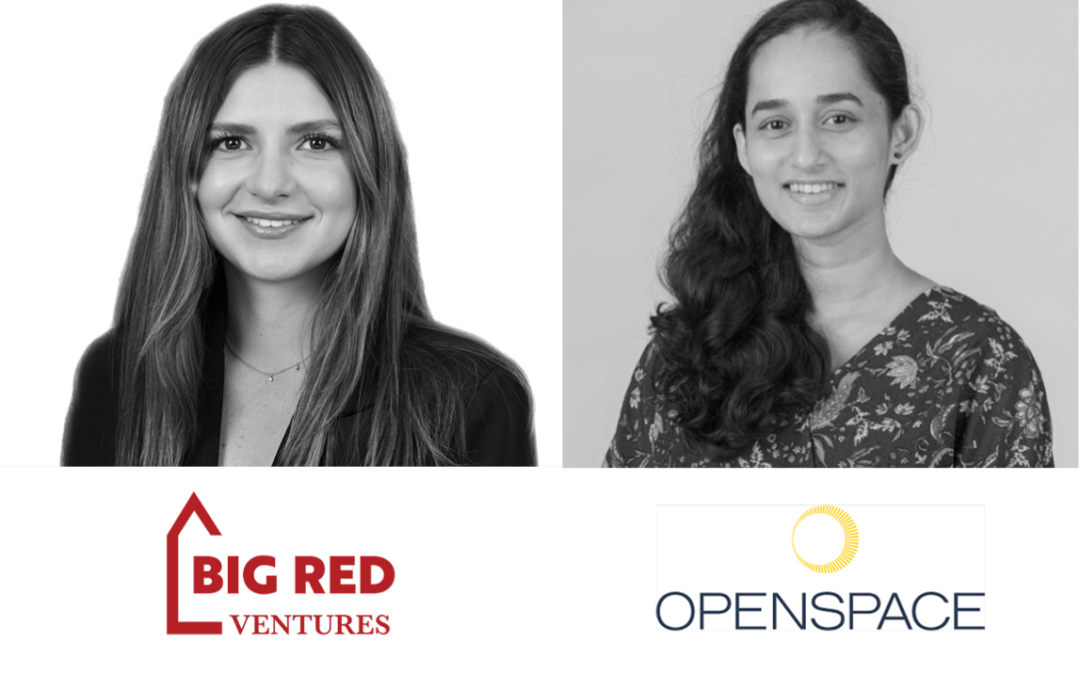Big Red Ventures Fund Manager: Audrey Vivas
Connecting with Pareen Chaudhari, Investment Associate at Openspace Ventures
Audrey: You started your career as a consultant and later moved into early-stage investing. How has your background shaped your approach to venture capital?
Pareen: Consulting trained me to work across sectors, teams, and contexts—often with limited information and high stakes. That built a muscle for pattern recognition, but also for listening closely, framing the right problems, and distinguishing noise from signal. In venture, those skills show up in how I assess founders and business models. I look beyond traction to understand how a founder processes complexity, how they reason through trade-offs, and how adaptable their thinking is. Consulting also taught me to be rigorous without being rigid—something that matters when supporting startups where the ground is always shifting. It’s less about bringing the answers and more about helping to ask the right questions at the right time.
Audrey: How do you balance identifying scalable models with the local nuances across Southeast Asia’s diverse markets?
Pareen: Southeast Asia is not a single market—it’s a collection of countries with different consumer behaviors, regulatory frameworks, and infrastructure realities. I’ve found that models scale best when they’re built with that nuance in mind from the start. I look for founders who are deeply embedded in their home markets and design for what’s real on the ground, but with a system that can flex into new contexts. Balancing scale and nuance means respecting local truths while looking for repeatable principles. It’s not about uniformity—it’s about resilience and adaptability.
Audrey: What sectors in Southeast Asia do you feel are still underexplored but hold massive long-term potential?
Pareen: I think climate and resource-efficiency sectors are still early in Southeast Asia but will be foundational in the next decade. We’re starting to see more attention on climatetech, circular logistics, and decentralized energy infrastructure—but the surface is just being scratched. These sectors require a long view and systems-based thinking, which may not always fit a traditional VC timeline, but they will create new categories of value. They also align closely with the needs of emerging markets—where infrastructure gaps are real, and the solutions need to be both scalable and grounded.
Audrey: In your view, how do macroeconomic and regulatory trends in SEA shape investment timing and strategy?
Pareen: Macroeconomic and regulatory shifts in SEA tend to move unevenly, but when they change, they create inflection points. In venture, timing matters—but it’s often less about predicting a moment and more about being prepared when the moment comes. I pay attention to where public policy is pushing capital flows (like renewable energy, or cross-border payments), and where infrastructure investments are creating new on-ramps for tech adoption.
Audrey: Can you walk me through a typical week at Openspace? How do you balance portfolio support, deal sourcing, and internal strategy?
Pareen: Every week is a mix of deep work and context-switching. I usually split time between portfolio management —whether that’s working on overall strategy or helping to think through hiring—deal diligence, and internal thinking around where we want to lean in next. At Openspace, we value both presence and pace, so we try to be thoughtful in how we show up for founders while also staying sharp on new themes. The balance shifts week to week, but the throughline is staying connected—to people, to ideas, and to where momentum is building.
Audrey: For students and early-career professionals hoping to break into VC, what do you think is most often misunderstood about the job?
Pareen: A common misconception is that VC is about picking winners. In reality, it’s about building conviction in the face of uncertainty and being a good partner long after the term sheet is signed. It’s less about having the loudest opinion and more about being trusted by founders, understanding systems, and learning how to ask better questions over time. Also, it’s a long game. What you build—your reputation, your relationships, your judgment—compounds quietly.
Audrey: What skill sets or mindsets are most valuable when investing in emerging markets?
Pareen: Pattern recognition is useful, but in emerging markets, so is unlearning. You need curiosity, patience, and a willingness to hold ambiguity without forcing a conclusion. What works in one market might fail in another for reasons that don’t show up in a spreadsheet. I’ve found that the most effective investors in this region are those who combine analytical discipline with emotional intelligence—who can listen deeply, challenge constructively, and build trust across difference. Ultimately, it’s about respecting the context, not trying to override it.

